Related Research Articles

Samba is a name or prefix used for several rhythmic variants, such as samba urbano carioca, samba de roda, recognized as part of the Intangible Cultural Heritage of Humanity by UNESCO, amongst many other forms of samba, mostly originated in the Rio de Janeiro and Bahia states.

Wanessa Godói Camargo, known professionally as Wanessa, is a Brazilian singer-songwriter.

Jorge Duílio Lima Menezes is a Brazilian popular musician, performing under the stage name Jorge Ben Jor since the 1980s, though commonly known by his former stage name Jorge Ben. Performing in a samba style that also explored soul, funk, rock and bossa nova sounds, Ben has recorded such well-known songs as "Chove Chuva", "Mas, que Nada!", "Ive Brussel" and "Balança Pema". His music has been interpreted by artists such as Caetano Veloso, Sérgio Mendes, Miriam Makeba, Soulfly and Marisa Monte.

Zé Ramalho is a Brazilian composer and performer. Zé Ramalho has collaborated with various major Brazilian musicians, including Vanusa, Geraldo Azevedo and Alceu Valença.
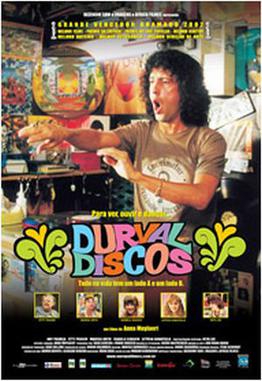
Durval Discos is a 2002 Brazilian absurdist dark comedy film written and directed by Anna Muylaert shot in Pinheiros, a borough of São Paulo. The film is noticeable for its soundtrack made up of 1970s Brazilian music that reflects the protagonist's taste, as he is himself a hippie, as well as André Abujamra's original score, more present in the film's second, darker half. The shift of mood from the first part to the second was advertised as life's A and B sides, a reference to the film's homage to LPs.

Vanessa Sigiane da Mata Ferreira, professionally known as Vanessa da Mata, is a Latin Grammy Award-winning Brazilian MPB singer, songwriter, and novelist. She has released four studio albums and the songs "Ai, Ai, Ai", "Boa Sorte/Good Luck" and "Amado" became number-one hits in Brazil.
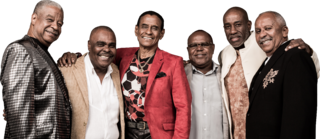
Grupo Fundo de Quintal or simply Fundo de Quintal is a Brazilian Samba band formed in Rio de Janeiro at the end of the 1970s.
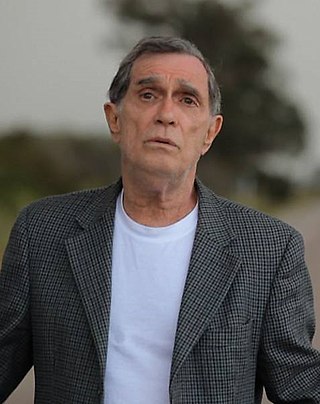
Henrique George Mautner, better known by his stage name Jorge Mautner, is a Brazilian singer-songwriter, lyricist, violinist, actor, screenwriter, film director and poet, considered to be a pioneer of the MPB scene and of the Tropicalista movement.

D is the first live album released by brazilian rock band Os Paralamas do Sucesso at the Montreux Jazz Festival in Switzerland.

Passo de anjo is the debut album of the Brazilian big band SpokFrevo Orquestra. Released in 2004, the album was praised for its innovation of frevo, which presents some influences from jazz, emphasizing improvisations. The album was firstly released independently. However, two years later, due to its success, it was released again by Biscoito Fino.
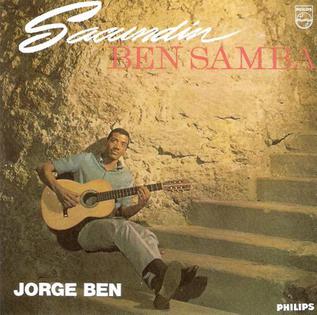
Sacundin Ben Samba is the second album by Brazilian singer-songwriter and guitarist Jorge Ben, released in 1964.

Kelly Key is the debut album by Brazilian recording pop artist Kelly Key, released on December 22, 2001 by Warner Music. The album brought ten fully copyright tracks, composed by Kelly in partnership with Andinho, Gustavo Lins and Rubens de Paula, plus a remix of "Escondido" as a bonus track. The tracks were produced by DJ Cuca and Sergio Mama, bringing the artistic production was created by Tom Capone and amixagem the Afegan producer directly from the recording studios in New York City. Kelly Key brought a differential to join R&B and dance-pop to the mode used by international artists, a novelty in Brazil at that time, with the biggest inspirations the American singers Britney Spears, Jennifer Lopez, Christina Aguilera, Madonna and Janet Jackson, beyond Brazil Luciana Mello and Fernanda Abreu. The album reached the top spot on the music charts in Brazil, selling a total of 1,000,000 copies and winning the platinum certificate.

Jorge & Mateus is a musical duo and one of the most famous interpreters of sertanejo music. The duo is composed of Goiás, Brazil-based vocalists Jorge Alves Barcelos and Mateus Pedro Liduário de Oliveira. Both are from the city of Itumbiara, in the Brazilian state of Goiás and were initially signed to Universal Music label. The duo is currently signed to Som Livre label.
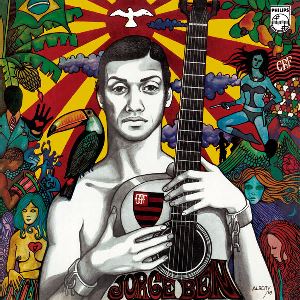
Jorge Ben is the sixth studio album by Brazilian singer-songwriter and guitarist Jorge Ben. It was released in November 1969 by Philips Records. The album was his first recording for a major label since 1965 when his first stint with Philips ended due to creative differences.
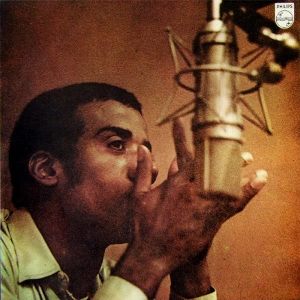
Fôrça Bruta is the seventh studio album by Brazilian singer-songwriter and guitarist Jorge Ben. It was recorded with the Trio Mocotó band and released by Philips Records in September 1970. Conceived at a time of political tension in dictatorial Brazil, its title comes from the Portuguese term meaning "brute force" and has been interpreted ironically due to the music's relatively relaxed style.
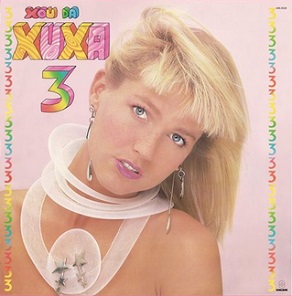
Xou da Xuxa 3 is the fourth studio album by Brazilian recording artist Xuxa. It was released on June 30, 1988, by Som Livre. Xuxa' best-selling album, has sold over 5 million copies in Brazil, making it the best-selling brazilian albums of all time, as well as the best-selling album by a female artist in the country.
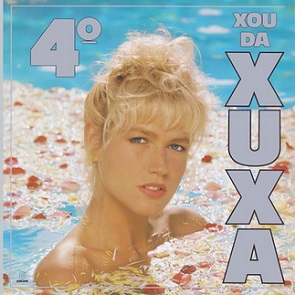
4º Xou da Xuxa is the fifth studio album by Brazilian recording artist Xuxa Meneghel, released on 11 July 1989. This LP was the fourth album of the collection Xou da Xuxa of a total of seven.

Xou da Xuxa is the second studio album by Brazilian recording artist Xuxa. It was released on 30 June 1986 by Som Livre, along with her television show in Globo.
Anjos de Resgate is a Brazilian Catholic band formed in 2000 and composed by Eraldo Mattos, Marcelo Duarte, Demian Tiguez and Diego Tiguez.

Luiz Carlos Leão Duarte Júnior, better known by his stage name Champignon and also referred to affectionately as Champ or Champs by fans, was a Brazilian singer-songwriter, lyricist, bassist, beatboxer, record label owner and drummer famous for his work with bands Charlie Brown Jr., Revolucionnários, Nove Mil Anjos and A Banca. Music critic Hagamenon Brito considered him one of the three greatest Brazilian pop rock bassists of all time alongside Paulo Roberto Diniz "PJ" Júnior of Jota Quest and Alexandre Dengue of Nação Zumbi, and Emir Ruivo of webzine El Hombre compared him to Red Hot Chili Peppers' Flea. Shortly after his death in 2013, caused by a self-inflicted gunshot wound following increasing bouts of anxiety and depression, he was featured in entertainment website Punk Brega's list of the Top 10 Greatest Brazilian Rock Bassists of All Time, in 10th place.
References
- ↑ Alexandre 2009, p. 169.
- ↑ Antônio Carlos Quinto (2018). "Pesquisa recupera a trajetória de integrantes da Revolta dos Marinheiros". Jornal da USP.
- ↑ Feltran 2013, pp. 55 et seq.